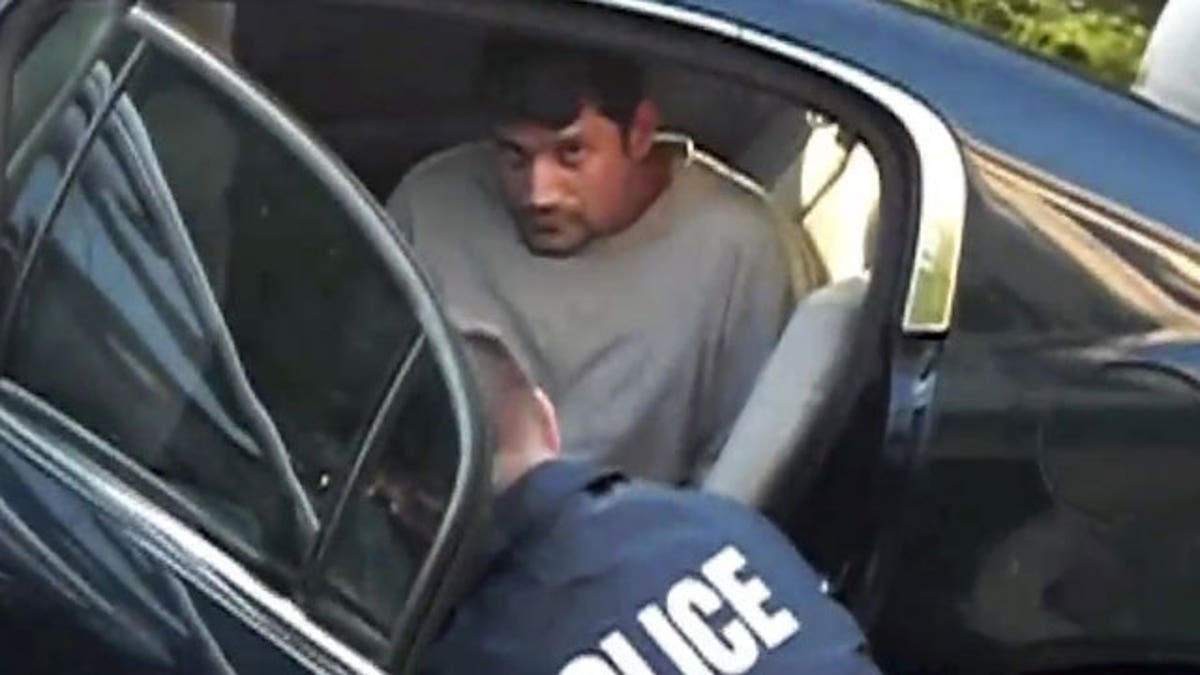
May 13: U.S. Immigration and Customs Enforcement officers take Aftab Ali Khan into custody outside a home searched by FBI agents in Watertown, Mass. (AP)
BOSTON -- A man arrested in Massachusetts during the probe into the failed Times Square bombing has been ordered deported to his native Pakistan, a U.S. immigration judge ruled.
Judge Robin Feder made the ruling Thursday in the case of Aftab Khan, according to Kathryn Mattingly of the Executive Office for Immigration Review.
Khan was one of three men arrested on immigration charges May 13 and suspected of supplying funds to the primary suspect, Faisal Shahzad, through an informal money transfer network. But authorities said the men may not have known how the money would be used.
Khan has 30 days to appeal Feder's decision and will not be deported before then, Gillian Brigham, an Immigration and Custom Enforcement spokeswoman, said Friday.
A lawyer in the office of Khan's attorney, Saher Macarius, said the office hadn't received Thursday's decision. A copy of the decision, which must be obtained by a Freedom of Information Act request, was not immediately available Friday.
In a May 20 hearing before Feder, Macarius asked the judge to allow Khan to voluntarily leave the country, while federal authorities asked Feder to keep Khan in the United States.
Shahzad, 30, of Bridgeport, Conn., is accused of leaving an SUV rigged with a car bomb in New York's Times Square on May 1 during a scare that cleared the teeming area for 10 hours. The smoking SUV scattered pedestrians, but the bomb never exploded, and no one was hurt. Shahzad was arrested May 3 on a Dubai-bound plane at John F. Kennedy International Airport.
Khan, a gas station attendant who lived in Watertown, said he had never heard of Shahzad before his arrest. But federal officials said Khan had Shahzad's first name and number in his cell phone and written on an envelope found in his apartment. After the hearing, Macarius questioned whether the confiscated cell phone belonged to Khan.
Macarius has said that Khan came to Colorado last summer to marry an American soldier he had met overseas, but that she broke off the engagement. In November, Khan married a teacher in Cambridge.
During the hearing, an ICE agent said Khan offered the woman in Colorado $5,000 to marry him and became angry when she refused. The ICE agent also said the teacher told investigators her marriage to Khan was a fraud, and she had agreed to marry him because he paid her $1,500 to $2,000.









































